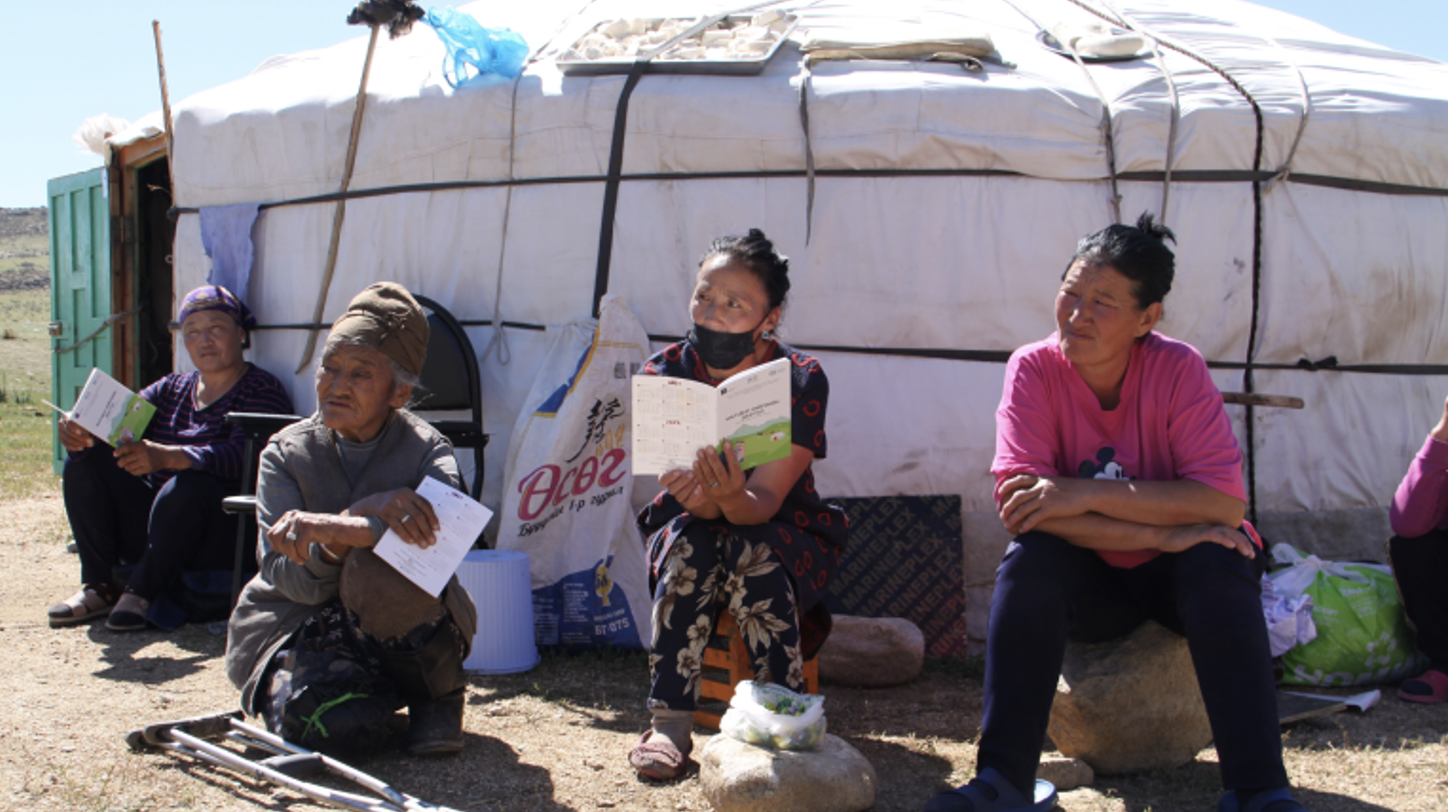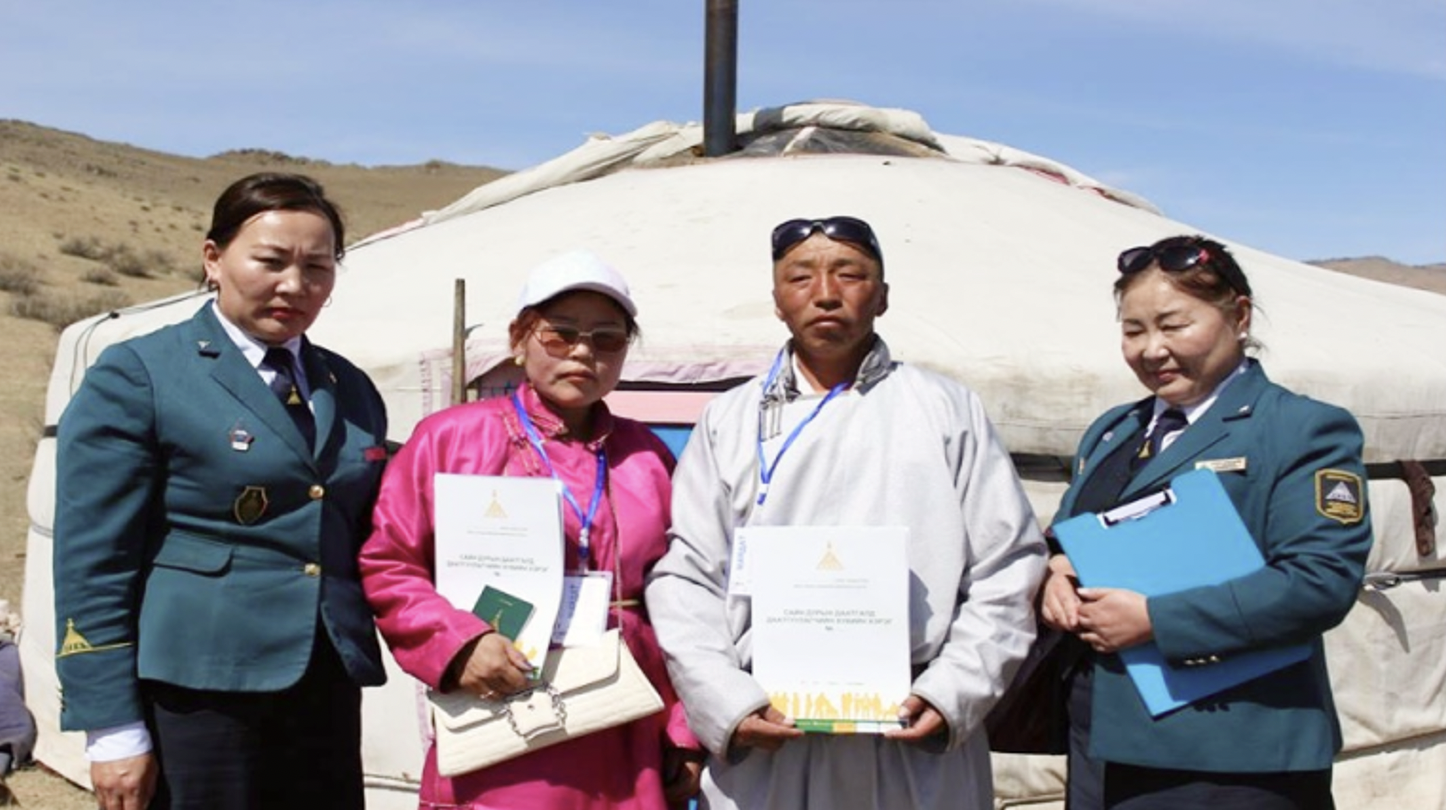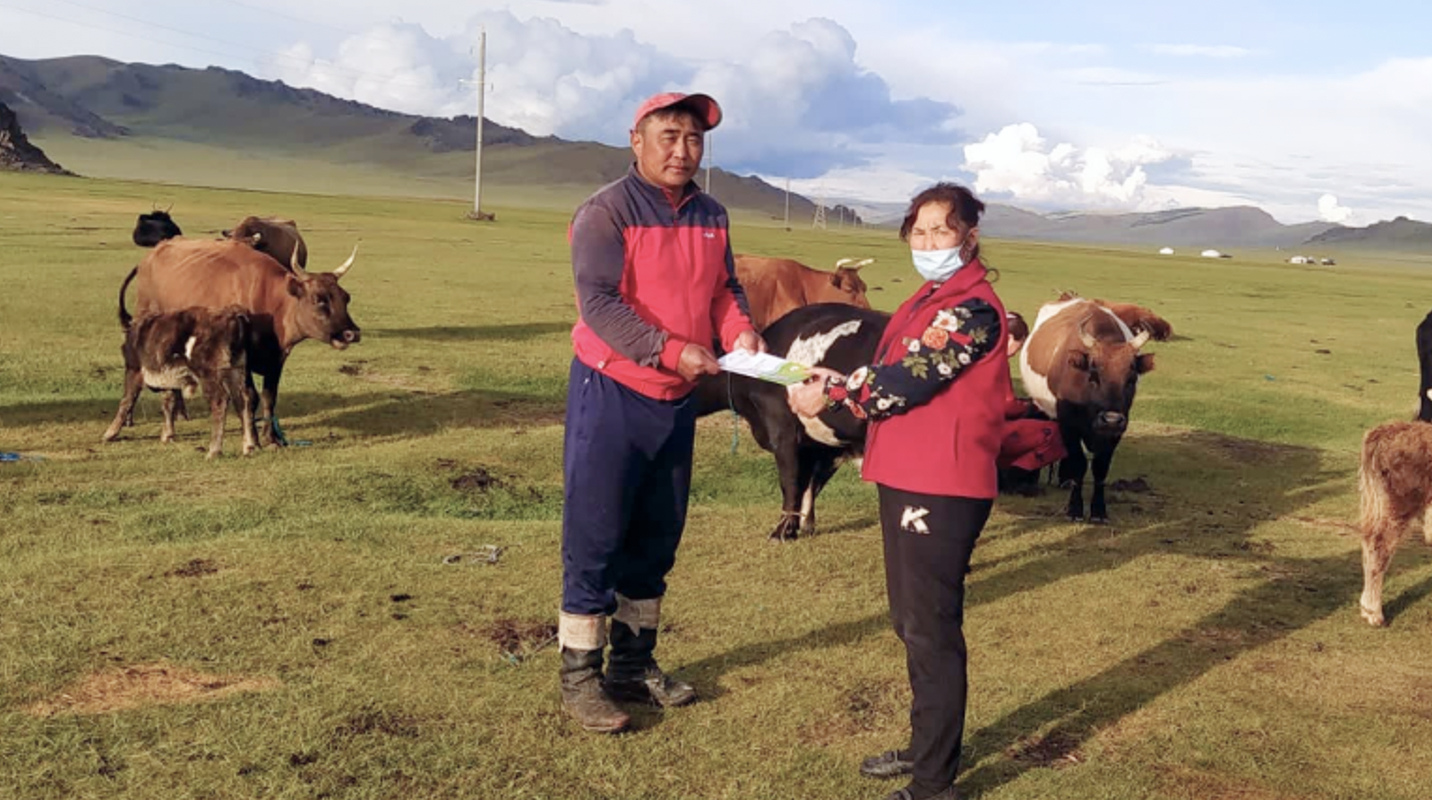Need for more advocates for social protection in rural areas
While accounting for a third of the population, only 15% of herders in Mongolia contribute to the voluntary social insurance scheme. Most of such low rate is due to a lack of knowledge of herders about social protection. According to a study, 30%-40% of herders who can be covered by social insurance lack knowledge and information, which proves the need for awareness-raising on social protection, its benefits, and ways to enroll in social insurance for herders in general.
To close this gap for social protection, ILO Mongolia has been working on three main intervention areas as part of the ILO-led UN Joint Programme (UNJP) “Extending Social Protection to Herders with Enhanced Shock Responsiveness” since February 2020. One of them is extending coverage of herders by identifying innovative and unconventional solutions to enroll herders in social protection schemes. The conventional way usually relies on social insurance officers in soums (lower administrative unit of the province) reaching out to herders and educating them on social protection.

Herders are scattered over large areas in Mongolia. Commonly, herder families live 30km-40km away from each other and on geographically challenging distances, making it harder for social insurance officers to reach them. Social insurance officers sometimes must pass high mountains to reach their destination. Because each soum has only one social insurance officer handling all insurance-related matters who is usually occupied with daily tasks, finding time to visit herder families is often rare for social insurance officers.
UNJP interventions
Based on the analysis of the current situation, the project team identified the need for more advocates for social protection. In this regard, the project team developed a systematic approach with two parts:
- Training of trainers: The purpose of the training is to equip social insurance officers with the latest information regarding social insurance, including the new law that is effective from January 2022, sustainable livestock farming, and herder cooperatives.
- Funding support: Social insurance officers’ conventional way to reach out to herders is costly, but they don’t receive any funding for their trips. Thus, to support their visits to herder families, the project has allocated daily allowance to each social insurance officer to cover their expenses related to petrol, accommodation, stationery, etc. In addition, social insurance officers received handbooks with comprehensive information about social protection specifically developed for herders to distribute.
Mongolia has a unique nomadic culture as herders move between locations throughout the year. Herders are busy during each season and rarely visit soum centers. Thus, reaching out to them is the core part of the intervention.
Simultaneously with the UNJP intervention in raising herders’ awareness of social protection through training and funding support, these social insurance officers in Zavkhan province are implementing creative and innovative approaches that complement their work.
Mobilizing local resources to approach herders
Uranchimeg Ishdorj, social insurance officer from Tosontsengel soum, has reached out to more than 160 herders and enrolled 280 herders in voluntary social insurance coverage as part of the UNJP. As a result of her effort, the coverage rate in her soum reached 40%, an unprecedented rate at the national level in terms of herders’ coverage. Uranchimeg said that this number could’ve been higher if Covid-19 related complications did not hinder the activity.

“Generally, herders’ awareness on social insurance has increased, and they have a certain understanding of its benefits,” she said about the situation in her soum. Nationwide, the highest rate of herders’ social insurance coverage at the soum level was recorded at 28%.
Uranchimeg and her team adapted extended collaboration with local governors to communicate with herders effectively. They recognized the importance of teamwork as an accelerator of their effort and started working with bagh (lowest administrator unit of the province) and soum governors. Bagh governors work closely with herder families and know well about their situations; thus, they make a great addition to the team of social insurance advocates.
Uranchimeg and her team organize training to bagh governors quarterly on social insurance and its benefits and amendments in social insurance laws and regulations to prepare them to answer herder’s questions while visiting herder families. To appreciate the efforts of bagh governors in raising awareness on social protection among herders, Uranchimeg approached their soum governor and asked for the possibilities of adjusting the performance indicators of bagh governors and adding indicators related to social insurance coverage. Moreover, to encourage the bagh governors, she organized a competition to award the bagh governor who enrolled the highest herders in social insurance.
“As a result of these approaches, herders’ knowledge on social insurance increased. We realized that it’s crucial to work with bagh governors,” Uranchimeg said.
By integrating inclusiveness in their approach, Uranchimeg and hear team reached out to vulnerable groups such as low-income people and people with disabilities, shared information about social insurance, and helped them understand its benefits. “When we visit them, they greet us cheerfully. They look at us as reliable people,” Uranchimeg said and emphasized the importance of considering different social groups in their work.
Frequent knowledge refreshing training for local governors
Natsagyum Shaalav, who has been working as a social insurance officer in Tsetsen Uul soum for 22 years, has reached out to 180 herder families and enrolled 145 herders in voluntary social insurance as part of the project.

Natsagyum’s unique approach is training bagh governors quarterly on social protection and frequently refreshing their knowledge through tests. “I test their knowledge and let them know how they did and based on the result; I tailor my training to their level. I give them a handbook about social insurance and test their knowledge again before the next training,” Natsagyum said. “So that I can see the changes in their knowledge.”
She also collaborates with bagh governors by training them as advocates for social insurance. Bagh governors sign an agreement with soum governors at the beginning of each year and define their key performance indicators. Natsagyum noticed an opportunity there to include social insurance-related indicators and had governors agreed to it. For instance, some new indicators include that the bagh governors are expected to advocate for social insurance while visiting herder families. Natsagyum evaluates the performance based on the number of families they shared information and increased coverage.
“I organize a competition among the five bagh governors and award them to encourage them and appreciate their efforts,” Natsagnyam said about her approach.
Like Uranchimeg and Natsagyum, many social insurance officers in Zavkhan province use their methods to reach out to herders, educate them on social insurance, and help them understand its benefits. As part of the project, all trained 18 social insurance officers will continue reaching out to herders and educating them on social protection until the end of 2021.



















